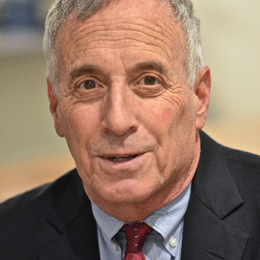Why We Claim Social Security Far Too Soon
There are three reasons, this expert says, and two are unwise
I just visited my mom. She’s 97. The trip over was short. She’s in an assisted living right across the street. Today was a bad day. She couldn’t hear the people at dinner, couldn’t hear the TV, her eyes hurt from reading…

“Why am I still alive?” she asked. “I never expected to live this long.”
“You’re 97, but you look 79 — well, 89.” I said. “And there are plenty of people your age. People over 100 are the fastest growing age group. Worldwide, we’re talking a half million centenarians. In 30 years, they’ll number 3 million.”
“Well, good for them. I’d rather be dead.”
“I’m taking you to dinner tomorrow. You need cheering up.”
A bad day. But the last two were good, with jokes and laughter.
Passing Up 76 Percent Higher Benefits
That’s life. We can’t count on dying on time. But almost all of us do. As a result, far too many of us take Social Security far too early.
Over two-fifths of us take retirement benefits at 62 and, as a result, pass up getting 76 percent higher benefits (inflation-adjusted) by waiting till 70. That’s a huge differential!
But only 2 percent of Americans wait till 70 to begin claiming Social Security retirement benefits. How come?
3 Reasons People Claim Social Security Before 70
There are actually three reasons.
First, lots of people — about one fifth — are out of money and simply have to collect.
Second, Social Security tells us it doesn’t matter if we collect less early or more late; on average, we’re told, we’ll end up with the same. “So,” their staff says, “you might as well collect early.”
Third, we’re superstitious. Surely just contemplating long life will produce instant death, we think.
Let me address each of those three buckets:
Those in the Bucket 1 have no choice.
Relying on What Social Security Says
Those in Bucket 2, who act on Social Security’s “on average” advice, however, are being badly misled. When it comes to our finances, we can’t play the averages. Instead, we hedge downside risk by diversifying our investments and buying insurance.
Social Security doesn’t get this. But none of the people it serves is living a version of the movie Groundhog Day, where we get to die over and over again and, on average, die at our life expectancy. No, we get to die only once. And that once can be at 97 or later. My proof’s across the street.
Social Security also doesn’t realize that in giving us initial collection date choices, it’s selling Methuselah insurance — insurance against living a long, long time. Giving up benefits for eight years to get much higher benefits as long as you live is paying a price (an insurance premium) to get more money when you need it.
Dying is cheap. You die, the bills stop. Living, now that’s expensive. Each year is another year of housing, clothing and feeding yourself, not to mention medical expenses. And, trust me, when you’re really old, you need money, lots of it — for the hearing aids, the dentures, the special glasses, the home health aides… — none of which is covered by Medicare.
So we can’t play the averages when it comes to insuring against lifespan risk any more than we can play the averages when it comes to buying homeowners insurance. We have to focus on the worst case scenarios — living too long and the house burning down.
Here’s my advice to those of you in Bucket 2: Social Security is the last place to go to learn about Social Security. Its 40,000 well-meaning, but severely undertrained, staffers are administering a system with literally hundreds of thousands of rules. It’s perhaps the most complex institution bureaucrats have yet devised. And none of these 40,000 people have been told that they are selling Methuselah lifespan insurance and that getting people to buy it means encouraging them to collect at 70, not as soon as possible.
Advice for the Superstitious
What about those in Bucket 3, who are too scared to wish their wishes? There are lots of these folks who have talked themselves into their worst fear. They say things like: “My parents died young. I’ve got their genes.” Or “The money’s right there for the taking. And I’m going to take it now while I still can.”
For people in Bucket 3, please realize that, financially speaking, early death is salvation. Late death is penury. So believing you will die young and acting on that belief when it comes to collecting Social Security is jinxing yourself for sure.


